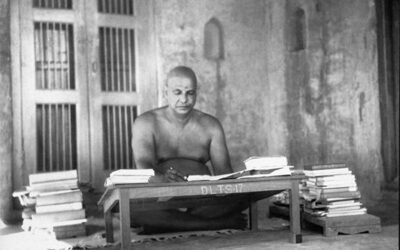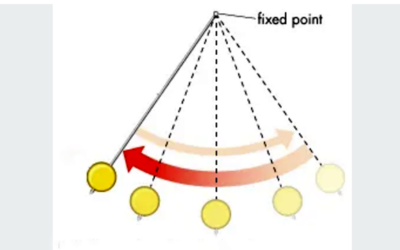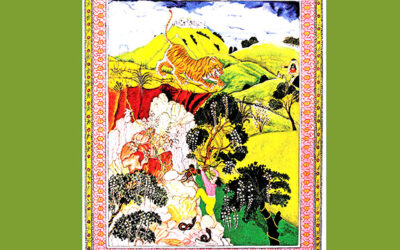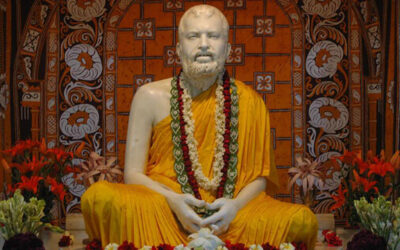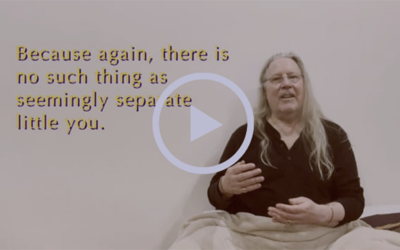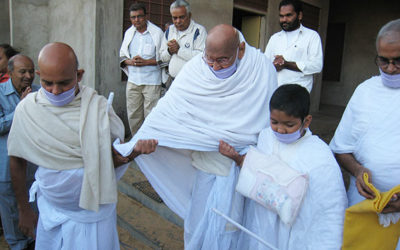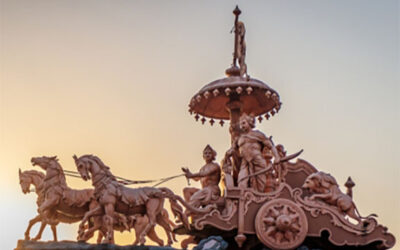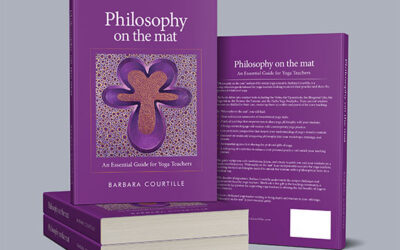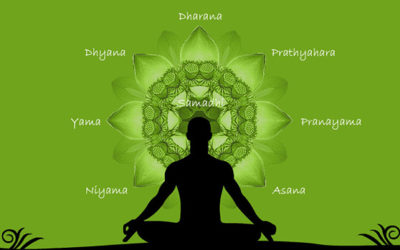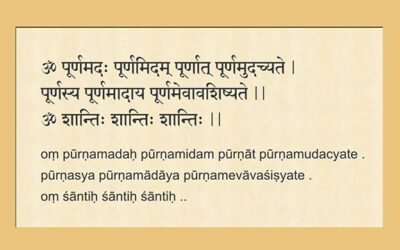In this episode of the Integral Yoga Podcast, host Avi Gordon (director of the Integral Yoga Teachers Association) discusses with Amma Kidd the significance of collective prayer, the transformative influence of a Guru, surrendering to God's will, and the...
Challenging the Norms: A Journey into Yoga’s Heart
In this enlightening episode of the Integral Yoga Podcast, hosted by Avi Gordon (director, Integral Yoga Teachers Association), Michelle Jacobi shares her captivating journey into the world of Yoga. Starting as a professional dancer in New York with a keen interest in...
Jnana Yoga’s Fourfold Sadhana
The Fourfold Sadhana of Jnana Yoga consists of viveka, vairagya, shadshampat or sixfold virtues and mumukshutva or strong yearning for liberation. Viveka dawns in one who, through the grace of God, has done virtuous actions in their previous births as offerings unto...
Learning to Work Through Challenges: Tapas (Self-Discipline)
"God knows your breaking point. You simply don't know your own strength." –Swami Satchidananda How many times have you been a safe container for those you care about? What did it look like? What did it feel like? Challenging oneself to be disciplined or to attain a...
Life’s Pendulum: Balance Amid Change
When you watch the thoughts passing through your mind by being the witness rather than getting caught up in them, is this the same as what is meant by the expression, “Offering it up to God?” Yes, you can look at it in this way. One approach is what we can call the...
VedantaWorks: The Teachings of Swami Vivekananda
VedantaWorks recently released their third podcast series: The Raja Yoga classes of Swami Vivekananda. VedantaWorks is dedicated to the teachings of Vedanta, the basic philosophy of Hinduism as expressed through Swami Vivekananda. Swami Vivekananda (1863-1902) was an...
The Path to Spiritual Awakening
The Cosmic Guru is the only Guru. All the rest is just comic. The real Guru is everywhere. Within, without. The Guru is above all the qualities, at the same time you see every kind of quality there. Sometimes the Guru is all sattvic, sometimes very rajasic, sometimes...
Embarking on a Spiritual Odyssey, Part 9: Sri Ramakrishna–All Paths Lead to God
In Part 8 of this series, we explored how Ramaswamy (Swami Satchidananda’s birth name) delved deeply into his spiritual yearnings, engaging with sacred texts and absorbing the wisdom of saints. Another profound influence during this formative period was the life and...
No Separate Little You
In this inspiring contemplation, renowned Yoga teacher Erich Schiffman offers an embodiment practice. He gently guides us toward the recognition that we only exist because "The All, The One, the only Mind, Consciousness or Presence in existence anywhere is what is...
Understanding the Ego
God or Infinite Consciousness is That through which our own egos move. Unfortunately, the ego tends to overlook the fact that its capacity to function is from that Source, and instead it comes up with the notion that I am doing everything by myself. But it would be a...
Light on the Yamas & Niyamas: Awakening to Ahimsa
In this column, Rev. Dale Ann Gray offers reflections on the yamas and niyamas of the Yoga Sutras, incorporating insights from classical Nondual Yoga. In this article, she unpacks the first yama, ahimsa (non-violence, non-harming). In the Yoga Sutras of Patanjali,...
Lessons from the Bhagavad Gita
The Bhagavad Gita is a foundational Yoga text. Integral Yoga Master Teacher Swami Asokananda, E-RYT 500 will explore "Lessons from the Bhagavad Gita" with participants from May 3 - 5, 2024 during this weekend immersion into this sacred text. The program takes place in...
Journeying Through Yoga Philosophy: Exploring Ancient Wisdom for Modern Practice
Inspired by my book “Philosophy on the Mat – An Essential Guide for Yoga Teachers,” this article delves into the evolution and significance of yoga philosophy in contemporary contexts. It traces yoga from its spiritual origins to its modern applicati
The Yoga of Waves
Gerry Lopez is one of the most influential surfers and surfboard shapers of all time. Known as "Mr. Pipeline"—for his mastery of the huge waves that form large, hollow, thick curls of water that surfers can tube ride—Lopez is an entrepreneur, a family man, a movie...
Patanjali’s Words: Eight Limbs of Yoga
Rev. Jaganath, Integral Yoga Minister and Raja Yoga master teacher, has spent a lifetime delving into the deepest layers of meaning in Patanjali’s words within the Yoga Sutras. Our series continues with sutra 2.29. In several prior sutras, Patanjali explained how...
A Deep Dive into Fullness
This shloka is a Shanti mantra from Brihadaranyaka Upanishad and Ishavasya Upanishad. This is an innocuous looking verse: one noun, two pronouns, three verbs and a participle for emphasis. Yet, someone once said: “Let all the Upanishads disappear from the face of the...



